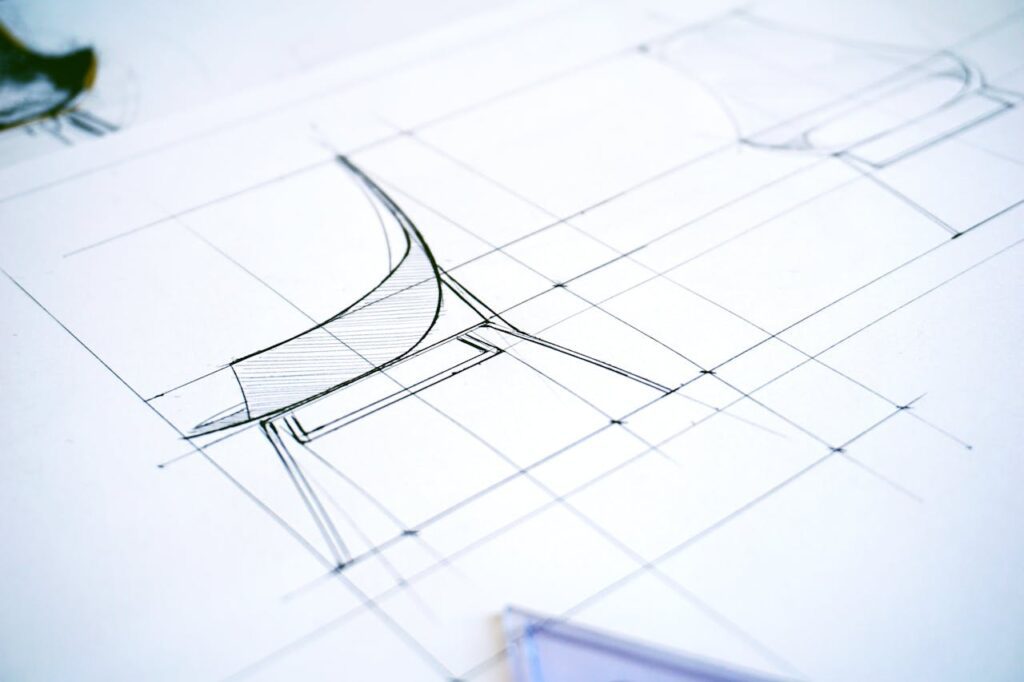Dreaming of that perfect home? Pre-construction planning can turn those dreams into reality. From customizing layouts to choosing finishes and design team, this phase sets the stage for your ideal living space. But it’s not just about design – it’s also about saving money and avoiding headaches down the road. With careful planning upfront, you can sidestep unexpected costs and delays that often plague construction projects. So, if you’re ready to build your dream home stress-free and within budget, pre-construction planning is the key.
Understanding Pre-Construction Planning
Importance Of Pre-Construction Planning
Pre-construction planning is crucial for first-time home builders as it sets the foundation for a successful project. This phase involves meticulous preparation, including tasks like site evaluation, budgeting, and securing necessary permits. By carefully crafting a comprehensive construction plan, individuals can avoid costly mistakes and delays that may arise during the building process.
Proper understanding of pre-construction planning ensures a smooth construction journey from beginning to end. It allows first-time home builders to identify potential challenges early on and develop effective strategies to address them. For instance, through detailed budgeting in the planning stage, individuals can accurately estimate costs and prevent overspending later on. Obtaining all required permits beforehand helps streamline the construction process without unexpected legal hurdles.
Benefits Of Pre-Construction Planning
- Efficient Resource Management: By outlining a clear construction plan at the onset, first-time home builders can efficiently allocate resources such as materials and labor throughout the project.
- Risk Mitigation: Through thorough site evaluation in pre-construction planning, potential risks like environmental hazards or structural limitations can be identified and mitigated proactively.
- Cost Savings: Effective budgeting during pre-construction by the builder prevents cost overruns by providing an accurate estimation of expenses before starting the build.
When embarking on their first home-building project, individuals should prioritize pre-construction planning to lay a solid groundwork for success. This initial phase not only ensures that every aspect of the construction process is thoughtfully considered but also empowers builders with knowledge and foresight essential for navigating any challenges that may arise along the way.
Importance Of Pre-Construction In Home Building
Setting The Foundation For Success
Pre-construction planning is like drawing a map before embarking on a journey. It lays out the path, highlighting potential obstacles and offering alternative routes. This crucial phase allows first-time home builders to visualize their house project from start to finish, ensuring that every step is carefully thought out.
Effective pre-construction planning involves meticulous attention to detail. By outlining every aspect of the house project beforehand, builders can anticipate challenges and address them proactively. For instance, identifying zoning restrictions or environmental concerns early on can prevent costly delays later during construction.
Saving Time, Money, And Minimizing Risks
One of the significant advantages of pre-construction planning is its ability to save first-time home builders time and money. By ironing out details such as materials needed, labor costs, and timelines in advance, unexpected expenses for a house are minimized. Moreover, having a clear plan reduces the likelihood of errors or rework during construction.
Another critical benefit is risk mitigation. Through thorough pre-construction planning, potential issues like design flaws or budget constraints are identified early on. Addressing these issues before the builder breaks ground ensures a smoother home construction process with fewer setbacks along the way.
Pros:
- Sets a clear roadmap for the entire building project.
- Helps in anticipating challenges and finding solutions beforehand.
- Saves time by reducing unexpected delays during construction.
Cons:
- Requires additional upfront investment in planning.
Key Components Of Pre-Construction Planning
Site Analysis And Selection
Selecting the right site for your new home is crucial. Consider factors like location, accessibility, and topography. Analyze the soil quality to determine its suitability for construction. For instance, if you plan to build a home in an area prone to flooding, proper drainage solutions must be incorporated into your plans.
Proper site selection can save you time and money in the long run by avoiding issues that may arise during construction. Conduct a thorough analysis of potential sites before making a decision. Look at aspects such as proximity to amenities, schools, and work locations when choosing where to build your new home.
Project Timeline And Budget Development
Creating a detailed project timeline helps keep the construction process on track. Break down tasks into manageable steps with specific deadlines. This ensures that each phase of the project progresses smoothly without unnecessary delays or setbacks.
Similarly, developing a comprehensive budget is essential for effective planning. Factor in all costs associated with building your home, including materials, labor, permits, and contingencies for unexpected expenses. Having a clear understanding of your budget constraints allows you to make informed decisions throughout the construction process.
Permits And Regulatory Compliance
Obtaining necessary permits is critical before starting any construction work on your new home. Different jurisdictions have specific regulations governing building projects, including home construction, that must be adhered to strictly. Failure to obtain required permits can result in fines or even halting construction at home altogether.
Ensure compliance with local zoning laws, building codes, and home regulations throughout the pre-construction phase. Work closely with architects and contractors who are familiar with these regulations to avoid any legal issues down the line.
Benefits Of New Construction Homes For First-Time Buyers
Customization Options
New construction homes are a great choice for first-time buyers because they offer a wide range of customization options. This means you can tailor your home to suit your individual preferences, from selecting the floor plan to choosing finishes like countertops and flooring. For example, you could opt for an open-concept layout in your home or add extra bedrooms to accommodate a growing family.
Pros:
- Personalized living spaces
- Ability to choose specific features
Modern Amenities And Energy-Efficient Features
One of the significant advantages of new construction homes is that they come equipped with modern amenities and energy-efficient features. These homes are designed with the latest technology in mind, ensuring that you have access to conveniences like smart thermostats, energy-saving appliances, and efficient heating and cooling systems. By investing in a new construction home, first-time buyers can enjoy these benefits right from the start.
Benefits:
- Lower utility bills
- Enhanced comfort and convenience
Warranties For Peace Of Mind
Another compelling reason why new construction homes are ideal for first-time buyers is that they often come with warranties. These warranties cover various aspects of the home, such as structural defects or issues with major systems like plumbing or electrical work. Having these warranties in place provides peace of mind to first-time buyers who may be unfamiliar with homeownership responsibilities.
Financing Options For New Home Construction
Construction Loans
Construction loans are specialized financing options designed specifically for new home construction projects. These loans provide the necessary funds to cover the various expenses associated with building a new home, such as materials, labor costs, and permits. Unlike traditional mortgages, which are based on the current value of a completed home, construction loans disburse funds in stages as the project progresses.
Exploring construction loan options is crucial. Some lenders offer one-time close home loans that streamline the process by combining both the construction loan and permanent mortgage into a single package. This approach simplifies payments and eliminates the need to secure separate financing at different stages of the project.
Comparing Financing Options
Before committing to a specific financing option for your new home construction project, it’s essential to compare different choices available in the market. Each type of loan, including home loans, comes with its own set of terms, interest rates, and repayment schedules. By evaluating multiple offers from various lenders or financial institutions, you can identify the best fit that aligns with your budget and requirements.
Pros:
- Specialized funding tailored for new construction projects.
- Flexibility in disbursing funds throughout different stages of building.
- Potential cost savings through streamlined one-time close loans.
Cons:
- Stricter qualification criteria compared to traditional mortgages.
- Higher interest rates due to increased risk associated with construction projects.
Factors To Consider When Choosing A New Construction Home
Location
When choosing a new construction home, location is crucial. Think about the proximity to schools, amenities, and commute times. For instance, living near good schools can be beneficial for families with children.
Consider how far you are from essential services like grocery stores or hospitals. These factors can impact your daily life significantly. Imagine having to drive long distances just for basic needs!
Builder’s Reputation
Before committing to a new construction home, it’s vital to assess the reputation and track record of the builder. Research their past projects and read reviews from previous clients. A reputable builder with a history of quality work is more likely to deliver on their promises.
Take into account any potential issues that may arise during the building process or after moving in. It’s essential to choose a builder known for using high-quality materials and craftsmanship.
Optimizing Efficiency Through Pre-Construction Planning
Efficient Resource Allocation
Pre-construction planning is crucial for successful construction projects as it allows for the efficient allocation of resources and materials. By carefully outlining the requirements at the beginning, builders can ensure they have the necessary supplies when needed. For instance, knowing exactly how much lumber or concrete will be required at each stage of construction prevents delays due to material shortages.
Effective pre-construction planning also involves coordinating with suppliers to guarantee timely deliveries. This proactive approach minimizes downtime on-site and keeps the project moving forward smoothly. By having a clear plan in place from the start, builders can avoid last-minute rushes to secure essential materials, enhancing overall efficiency.
- Pro: Ensures resources are available when needed
- Pro: Minimizes downtime and delays due to material shortages
- Con: Requires detailed coordination with suppliers
Streamlining Construction Processes
Another benefit of construction planning is its ability to identify potential bottlenecks early on and streamline processes throughout the construction phase. By analyzing the project design alongside input from the design team, builders can anticipate areas where issues may arise and develop solutions proactively. For example, recognizing that certain structural elements require specialized framing techniques enables builders to address these needs ahead of time.
Streamlining construction processes through pre-construction planning also involves setting clear objectives for each stage of the project. This ensures that every member of the construction team understands their role and responsibilities, reducing confusion and improving overall performance on-site.
- Pro: Identifies potential bottlenecks before they impact progress
- Pro: Enhances communication among team members
- Con: Requires thorough analysis of design specifications
Timely Execution Of Activities
One key aspect facilitated by effective pre-construction planning is ensuring that all construction activities are carried out in a timely manner. By creating a detailed timeline that outlines each task’s start and end dates, builders can monitor progress closely throughout the entire project lifecycle. This level of oversight helps prevent unnecessary delays by allowing adjustments to be made promptly if any activity falls behind schedule.
Moreover, maintaining a strict adherence to timelines not only keeps construction on track but also contributes significantly to achieving a favorable return on investment (ROI). Completing tasks within projected timeframes reduces costs associated with extended labor or equipment rentals while maximizing efficiency across all aspects of construction operations.
- Timeline creation helps monitor progress effectively.
- Adherence leads to cost savings.
- Promotes efficiency in all operational aspects.
Clear Communication Channels In Pre-Construction Planning
Importance Of Establishing Clear Communication Channels
Effective communication is key during pre-construction planning. It ensures that all teams involved are aligned with the project’s goals and expectations. By establishing clear channels, such as regular meetings and updates, everyone stays informed and on track.
Maintaining open and transparent communication throughout the process helps prevent any potential issues or misunderstandings. For instance, if there are unexpected delays or errors discovered during the planning phase, having a clear line of communication allows for swift resolution without causing significant setbacks.
Benefits Of Open And Transparent Communication
When all stakeholders, including the client, contractors, architects, and other parties involved in the project, communicate openly, it creates a collaborative environment where ideas can flow freely. This collaboration often leads to innovative solutions to challenges that may arise during pre-construction planning.
Moreover, open communication fosters trust among team members. When everyone feels heard and valued within their respective roles, they are more likely to work cohesively towards achieving common objectives. This synergy not only enhances productivity but also minimizes misunderstandings that could potentially lead to costly mistakes down the road.
Advice For First-Time Home Builders On Pre-Construction Planning
Seek Guidance
When embarking on your first home building project, it’s crucial to seek advice from experienced builders. These professionals can provide valuable insights and help you navigate the complexities of pre-construction planning. By tapping into their expertise, you can avoid common pitfalls and ensure a smoother building process.
Engage with architects, contractors, and other industry experts to gain a comprehensive understanding of what the pre-construction phase entails. Their guidance can be instrumental in shaping your project’s trajectory and setting realistic expectations. Remember that these individuals have likely encountered various challenges and scenarios in previous projects, making them invaluable resources for first-time builders.
Research Local Regulations
Before diving into the planning stage, take the time to research local building codes and regulations. Understanding these requirements is essential for ensuring that your project complies with legal standards. By familiarizing yourself with zoning laws, permit procedures, and construction guidelines early on, you can prevent costly delays or setbacks during the build.
Local authorities may have specific mandates regarding property setbacks, height restrictions, materials usage, and environmental considerations. Being aware of these regulations upfront allows you to incorporate them into your plans from the outset. This proactive approach not only streamlines the approval process but also demonstrates your commitment to responsible building practices.
Prioritize Your Needs
One of the most critical steps in pre-construction planning is defining your needs, budget constraints, and priorities clearly. Take some time to reflect on what features are non-negotiable for your dream home versus elements that are nice-to-have but not essential.
Creating a list of must-haves can guide decision-making throughout the planning phase while keeping costs in check.
Closing Thoughts
You’ve now grasped the power of pre-construction planning in crafting your dream home. By diving into the nitty-gritty details and laying a solid foundation, you’re setting yourself up for success as a first-time builder. Remember, Rome wasn’t built in a day, and neither should your dream home be rushed. Take your time, plan meticulously, and watch your vision come to life.
Now, armed with knowledge on the importance, key components, benefits, financing options, and factors to consider in pre-construction planning, it’s time to put your newfound wisdom into action. Start sketching out those blueprints, crunch those numbers, and get ready to embark on this exciting journey of building your first home. Your dream home awaits – go out there and make it a reality!
Frequently Asked Questions
1. How Can Pre-Construction Planning Benefit First-Time Home Builders?
Pre-construction planning helps first-time builders by laying a solid foundation for their project, ensuring smoother progress, avoiding costly mistakes, and providing clarity on the entire construction process.
2. What Are The Key Components Of Pre-Construction Planning In Home Building?
Key components include site evaluation, budgeting, design development, obtaining permits, selecting contractors, and creating a timeline. These elements work together to streamline the construction process and set the project up for success.
3. Why Is Clear Communication Essential In Pre-Construction Planning?
Clear communication ensures that everyone involved in the project is on the same page regarding expectations, timelines, and responsibilities. It helps prevent misunderstandings and allows for effective problem-solving throughout the construction process.
4. Are There Specific Financing Options Available For New Home Construction Projects?
Yes! Financing options such as construction loans or FHA loans tailored for new constructions can help first-time buyers fund their dream home projects. These options often provide flexibility during different stages of construction.
Optimize Your Project’s Success With Pre-Construction Planning By Red White & Blue Construction!
Embarking on a construction project in Lafayette, CA? Look no further than Red White & Blue Construction for expert pre-construction planning services! Specializing in laying the groundwork for successful construction projects, we tailor our pre-construction strategies to meet your specific project goals. Renowned for our expertise in pre-construction planning, we are committed to ensuring your project’s vision is meticulously planned and prepared for, whether it’s a residential, commercial, or community initiative. Our reputation across the Bay Area speaks to our dedication to precision, quality, and the exceptional standards we uphold in every phase of planning.
At Red White & Blue Construction, we do more than just prepare; we set the foundation for your project’s success. With our comprehensive planning, transparent pricing, and exceptional client service, you’re not just planning a construction project; you’re setting the stage for a seamless, efficient build. Choose Red White & Blue Construction for your pre-construction planning needs. Begin your project with confidence and contact us today!
Disclaimer
The materials available on this website are for informational and entertainment purposes only and not to provide advice. You should obtain advice concerning any particular issue or problem from a professional. You should not act or refrain from acting based on any content included in this site without seeking legal or other professional advice. The information presented on this website may not reflect the most current building developments. No action should be taken in reliance on the information on this website. We disclaim all liability concerning actions taken or not taken based on any or all of the contents of this site to the fullest extent permitted by law.





